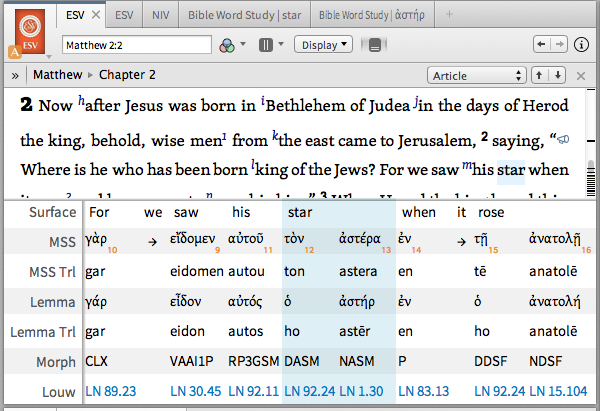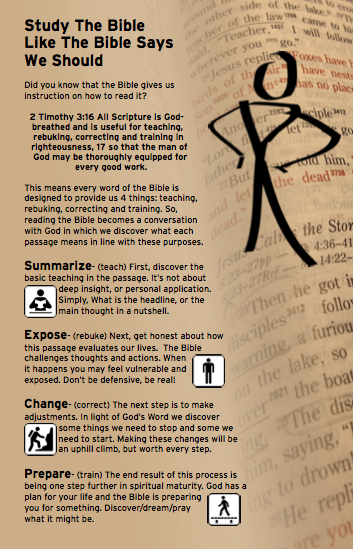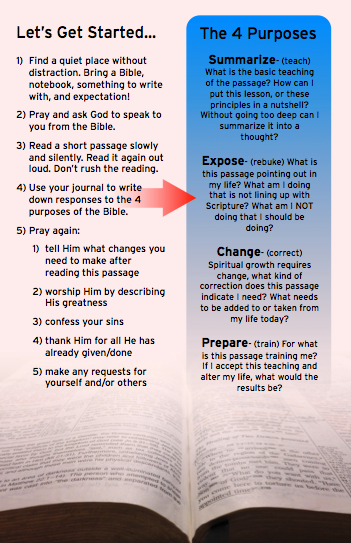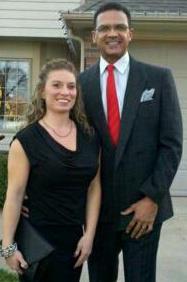A huge component of the Christian experience is community.
Unfortunately, we live in a generation that claims to be spiritual, but highly values independance. We love statements like:
- I’m not religious, but I am spiritual.
- I love God, I just don’t like the church.
- My beliefs are personal.
- I’m closest to God when I’m by myself out on the lake.
There’s just one problem with phrases like these, and that problem is called the Bible. You can’t believe the above statements and the Bible at the same time.
Here’s what I mean:
I’m not religious, but I’m spiritual – anytime we try and distance ourselves from religion because some professor/teacher/friend told us religion and religious people were wrong/stupid/idiots, we deny what the Bible says: Hebrews 10:24-25 “And let us consider how to stir up one another to love and good works, not neglecting to meet together, as is the habit of some, but encouraging one another, and all the more as you see the Day drawing near.”
I love God I just don’t like the church – to say you love God, but don’t love the church is an insult to the God you say you love. In Revelation 21:9 there is a descriptive/allegorical reference to Christ and His church: “Then came one of the seven angels who had the seven bowls full of the seven last plagues and spoke to me, saying, “Come, I will show you the Bride, the wife of the Lamb.”” Throughout Scripture, the church is known as the Bride of Christ. To say you love God but don’t love the church is just like looking at someone and saying, “I like you but I can’t stand your wife.” That’s bad form, my friend.
My beliefs are personal – in a politically correct universe we are all allowed to have opinions, so long as we never let anyone know what they are. This has led us to the place of seeing our faith as a private matter that should never be spoken. Unfortunately, for the believer in God’s word, this is not possible. We see it clearly in Romans 10:9, “Because, if you confess with your mouth that Jesus is Lord and believe in your heart that God raised him from the dead, you will be saved.” Obviously, a mandated component of faith is going public. In fact, it’s very difficult to find a biblical reference that tells you to keep anything quiet.
I’m closest to God when I’m by myself out on the lake – I think it’s possible to have moments of closeness to God in solitude, but most people use this line of thinking as an excuse to get out of being a part of the church. Colossians 3:16, “let the word of Christ dwell in you richly, teaching and admonishing one another…” First Corinthians 12:27, “Now you are the body of Christ and individually members of it.” Romans 12:5, “so we, though many, are one body in Christ, and individually members one of another.” Believe me, I could go on and on.
Truth is, if you’re going to be biblical about your Christianity you need to be part of the Body of Christ, a.k.a. church. Now, there are many churches and many people involved, but there is one additional element that takes that experience to a whole ‘nutha level!
In the contemporary church expereince you drop the babies off in the nursery, the kids in the children’s wing, shuttle the teenagers off to the youth service and the adults gather together for Sunday school or “big church.”
But time after time in Scripture we see that separating our churches by age, and keeping the older’s away from the youngers because they don’t like each other’s music or pop culture references, leads to one thing: an unhealthy church.
Titus 2 instructs the church to have the older man teach the younger man in the older women teach the younger women, to live life together. We call this, intergenerational ministry.
Intergenerational ministry is a two-way street; the older folks have to love the younger folks and be willing to put up with their shenanigans. And the younger folks must be taught to respect and cherish their elders. In this environment, real ministry takes place. Instead of communicating information in isolated age graded classes, intergenerational churches see real revelation in their teaching that erupts in transformation of real lives.
Our church has been struggling with this for years. We’ve instituted an annual Rite of Passage to elevate our children to adult status when they are ready. We’ve open the doors of service to a multiplicity of ages so that teenagers and seniors can serve side-by-side. We have broken down barriers of age grading allowing those in the church to be influenced, motivated and trained by people they differ from by decades.
Last Sunday evening, my Grow Group (life group, small group, cell group, pick your flavor, etc.) decided to integrate intergenerational life at that level.
We have just under a dozen kids between the ages of three and 11 that hang out in the basement during our Grow Group time.
It usually requires at least one or two parental visits downstairs to keep it in check. Practicing a stern face, the gritted teeth, and the quiet yelling as you descend the stairs, “I told you kids to keep it down!”, we had kind of fallen into this as a rut of normalcy.
So, we decided to eat together, study together and pray together like we always do, but this time with a little change up!
We ate first and made sure the kids didn’t run off to the basement, but kept them with us. Then, we moved prayer time from the end to the middle.
We kept the children with us and told them we wanted them to see what we did while they were playing. We explained that we were going to pray for each other, and that we often prayed for them.
Finally, we shared some Scripture about how important it was to live for the Lord and asked them if they had prayer concerns. Believe it or not, they did. Apparently grade school can be pretty stressful!
Then we all prayed together and dismissed them to go play while we finished with study.
Here’s the take away:
1. It was hard to get into that night’s Bible study since all the adults were talking about how awesome that was having their kids hear Scripture from other adults and be encouraged in prayer. There really were some giddy daddies in that Bible study.
2. Parents talked to their kids on the way home, and the consensus was those kids thought it was amazing, too. They were looking forward to doing it again.
No theologians… No trained children’s professionals… Just a room full of moms, dads, singles and grandparents who love Jesus and lived it out in front of other generations.
Let me encourage you to make sure that you are living the Christian life in community. And then go the extra mile, make sure that you are learning from those who’ve walked many more miles than you, and then make sure you are sharing with those who are trying to follow your footsteps.
Psalm 71:18 So even to old age and gray hairs,
O God, do not forsake me,
until I proclaim your might to another generation,
your power to all those to come.









